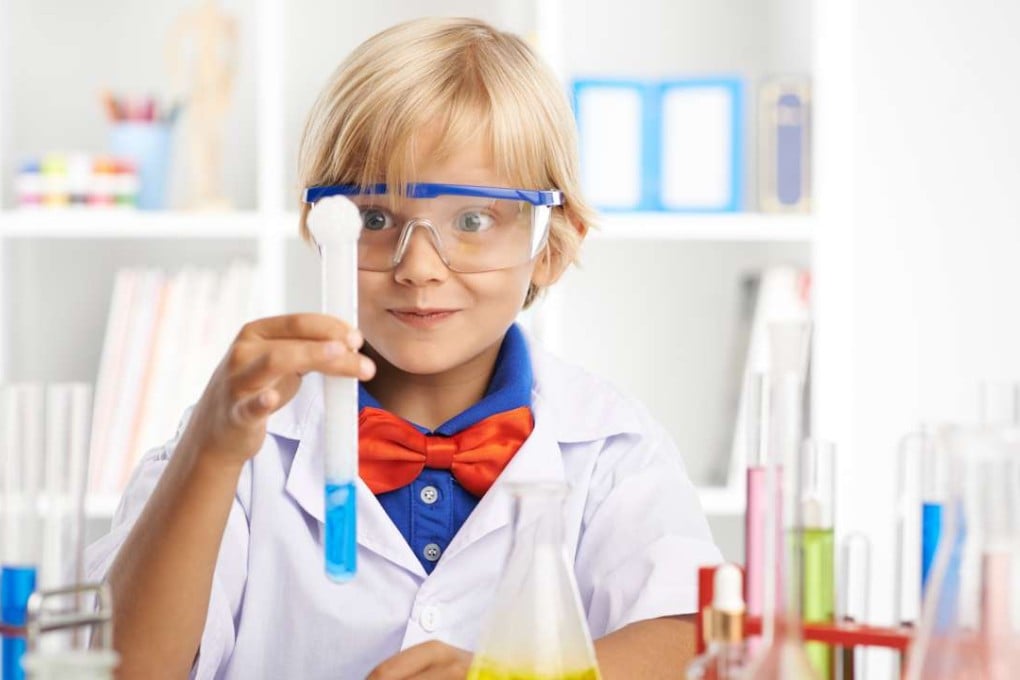Why no lab time in son’s IB science class, Hong Kong mum wonders
There are all sorts of science experiments that can be carried out in primary schools, even if they lack laboratory space and the necessary scientific equipment

My son’s great passion is science. He’s always doing experiments at home and attends an extracurricular club after school, but he’s disappointed his school hardly does practical work. He attends Year Five at an international school doing the International Baccalaureate (IB) curriculum, which is sold to parents as being inquiry-based, yet science lessons seem to be mostly paper-based or research work. Surely young children need to have the chance to do hands-on experiments?
There’s something irresistable about putting on goggles and lighting a Bunsen burner, or mixing chemicals to make an exploding volcano. Practical science experiments certainly ignite the enthusiasm of most children. Research work and paper-based activities alone, however interesting, just don’t cut it.
However, many primary schools do not have the laboratories and scientific equipment needed to develop certain practical skills. Nevertheless, there are all sorts of science experiments that can be carried out. Physics experiments, for example, can be set up in the classroom, playground or surrounding environment: building structures out of straws and testing their strength and rigidity; gravity tests such as dropping different parachute designs from a height to see which land first; friction experiments using toy cars and ramps covered with different materials.
Students could build electrical circuits, do simple melting and dissolving experiments, and study conduction. Simple chemistry in the classroom, such as the exploding volcano, is always a favourite. Biology, in the form of plant growth, is another popular activity within the school environment.

All of these experiments require prediction, observation and measuring skills – keys to becoming a competent scientist. Students may also need to produce graphs or charts to show their results clearly, or write a scientific report using the correct technical language to record and explain their findings, and make a conclusion. These skills will be built on when they take the subject further at secondary school, where facilities are more extensive.